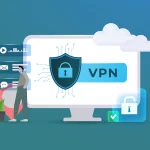No Surprise as Birmingham University Reveals P2P File Sharers are Monitored
New research from Birmingham University UK has confirmed that most public BitTorrent (P2P) file sharers have their file transfers monitored by a third party organisation, such as Rights Holders for the purpose of taking copyright enforcement action against broadband ISPs and their customers. But the data collected is far from reliable.
The research, which was carried out by developing software that acted like a BitTorrent file sharing client and logged all the connections made to it, found that “massive monitoring of all of the most popular illegal downloads from the PirateBay” website has been taking place for at least the last 3 years.
Advertisement
This will of course be nothing new to unlawful file sharers, most of whom have known about the situation since the first legal threats against file sharers by law firms, such as the notorious ACS:Law and Davenport Lyons, surfaced several years ago.

Fig.1 – Example of Unlawful P2P Torrent Downloads
This is all possible because P2P software must communicate a tremendous amount of information between clients, including your connections IP address. Nearly all of this information is then pasted into the public domain and, using clever data analysis software, law firms are able to track and monitor the activity of each individual user.
Birmingham University – Researchers’ Findings
* Massive monitoring of all of the most popular illegal downloads from the PirateBay has been taking place over the last 3 years.
* On average an illegal file sharer, using BitTorrent to download the most popular content, will be connected to and have there IP address logged within 3 hours of starting a download.
* Poor collection methods mean the evidence collected by monitors may not stand up in court.
* The use of third party hosting companies allowed the monitors to avoid ‘block lists’ that attempt to stop known monitors from connecting to file sharers.
The study also confirms much of what past court cases and similar reports have already revealed, that the data collected can often be unreliable. For example, a small discrepancy in the log times could mean the difference between matching thousands of IPs to the right connection or matching them to the wrong ones.
Likewise the use of IP spoofing / redirection, wifi hijacking and other methods used to confuse trackers can also cause problems. Even when the tracking works you can only ever identify the connection owner, which could be a public wifi hotspot, hotel, large family or business shared by potentially thousands of individuals.
Advertisement
Dr Tom Chothia, University of Birmingham Researcher, said:
“This work reveals the full scale of the monitoring of illegal file sharers. Almost everyone that shares popular films and music illegally will be connected to by a monitor and will have their IP address logged. What is done with this information in the long term only time will tell.
All the monitors observed during the study would connect to file sharers believed to be sharing illegal content and verify that they were running the BitTorrent software, however they would not actually collect any of the files being shared. Therefore, it is questionable whether the monitors observed would actually have evidence of file sharing that would stand up in court.”
Sadly, despite the weight of research against the use of IP addresses as admissible evidence (not to mention several recent court rulings), the government and Ofcom continue to view such data as viable for use in their controversial Digital Economy Act (DEAct). This requires broadband ISPs to clamp down upon P2P internet copyright infringement (piracy) and will be based off practically identical monitoring reports.
The Unbearable Lightness of Monitoring: Direct Monitoring in BitTorrent (PDF)
http://www.cs.bham.ac.uk/~tpc/Papers/P2PMonitor.pdf
Mark is a professional technology writer, IT consultant and computer engineer from Dorset (England), he also founded ISPreview in 1999 and enjoys analysing the latest telecoms and broadband developments. Find me on X (Twitter), Mastodon, Facebook, BlueSky, Threads.net and Linkedin.
« RIPE Warn EU and UK Supply of IPv4 Internet Addresses to Run Out Next Month

















































Comments are closed